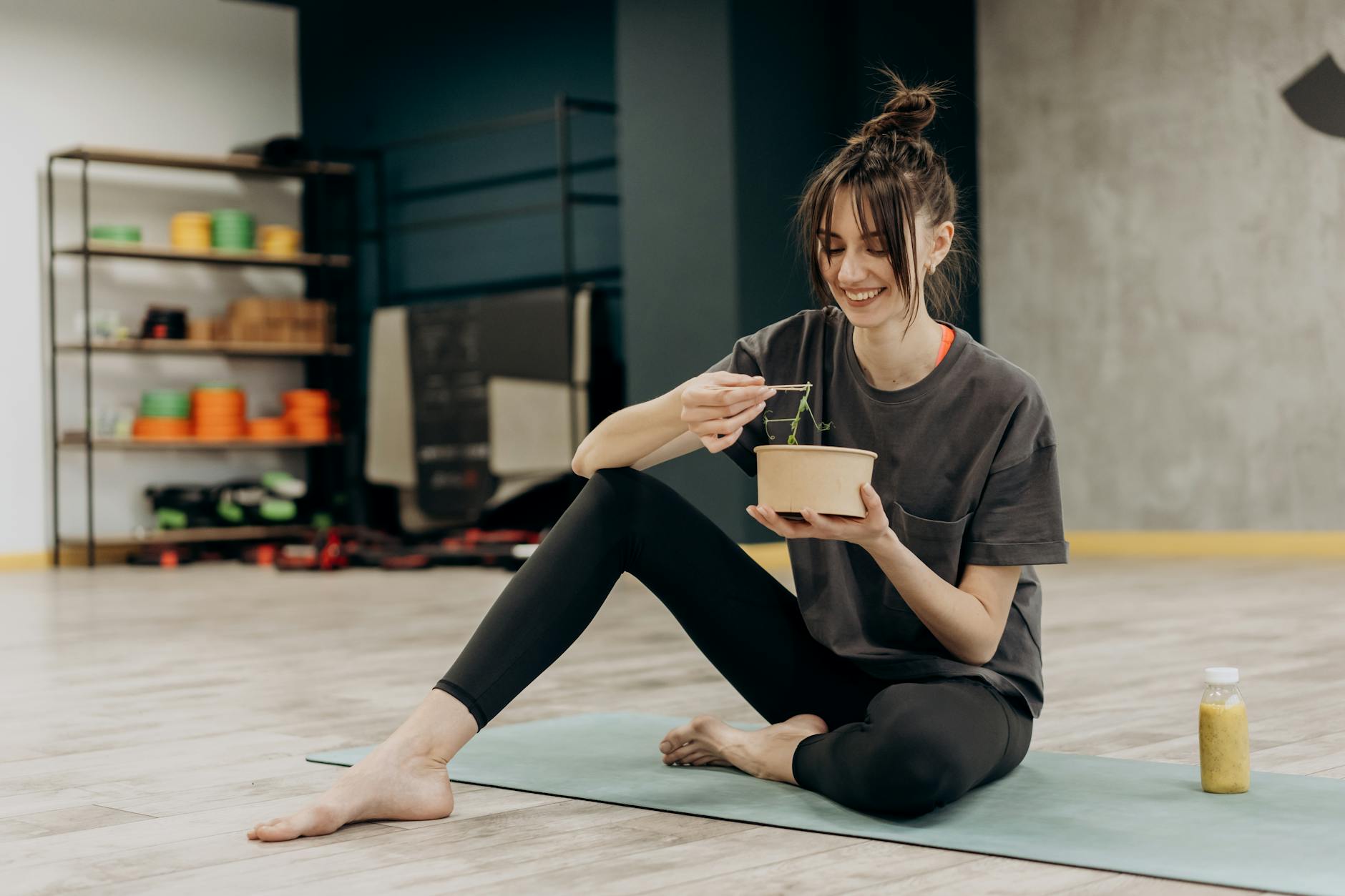The Role of Nutrition in Achieving Your Fitness Goals
Introduction
Hey fitness fans! 👋 Want to boost your workout results? Great news! We're going to talk about fitness nutrition. It's not just about working out hard. What you eat matters too.
In this guide, we'll look at how good food helps you reach your fitness goals. We'll cover building muscle, losing fat, and getting better at sports. Food and fitness go hand in hand. So, grab a snack, and let's learn!
The Fitness-Nutrition Connection
Let's talk about how fitness and nutrition work together. Your body is like a car. Exercise is the engine, and food is the fuel. You need both to run well.
Macronutrients: The Building Blocks of Fitness Nutrition
Proteins: The Muscle Makers
Proteins are super important for fitness. They help fix and grow muscles. When you work out, you make tiny tears in your muscles. Protein helps fix these tears.
Pro tip: Try to eat 1.6 to 2.2 grams of protein for every kilogram you weigh if you want bigger muscles [1].
Carbohydrates: Your Body's Fuel Source
Carbs aren't bad! They give you energy, especially for hard workouts. Good carbs are in whole grains, fruits, and veggies. They keep you going longer.
Fun fact: Your brain loves carbs! It uses the sugar from carbs to work well.
Fats: Not Just for Flavor
Don't be scared of fats! Good fats help make hormones. You can find them in avocados, nuts, and olive oil. They also help your body use other nutrients.
Micronutrients: The Unsung Heroes
Small nutrients are important too. Vitamins and minerals help your body work right. They keep you healthy and help you recover from workouts.
Key micronutrients for fitness:
- Vitamin D: Good for muscles and bones
- Iron: Helps carry oxygen to muscles
- Magnesium: Helps muscles and nerves work
- Zinc: Helps muscles heal and grow
Hydration: The Fitness Elixir
Water is super important. Even a little dehydration can hurt your workout. Try to drink at least 8 glasses a day. Drink more if you sweat a lot.
Quick Hydration Quiz:
How much water should you drink during a one-hour workout?
- 1-2 cups
- 2-3 cups
- 3-4 cups
- It depends on intensity and climate
(Answer: It depends on intensity and climate, but 2-3 cups is usually good)
Timing is Everything: When to Eat for Maximum Gains
Pre-Workout Nutrition
Eating before you work out helps a lot. Try to eat some carbs and protein 2-3 hours before. If you're in a hurry, a banana with peanut butter 30 minutes before is good too.
Post-Workout Nutrition
Eating after your workout is really important. Your body is ready to use nutrients right after exercise. Try to eat protein and carbs within an hour after working out.
Nutrition Strategies for Different Fitness Goals
Building Muscle: The Bulking Phase
To build muscle, you need to eat more calories than you burn. But don't just eat junk food. Focus on good proteins, carbs, and fats. Keep pushing yourself in workouts too.
Muscle-Building Meal Idea: Chicken, sweet potato, and broccoli with a bit of olive oil.
Losing Fat: The Cutting Phase
To lose fat, you need to eat fewer calories than you burn. Don't starve yourself though. Eat lots of protein and veggies. This helps keep your muscles while losing fat.
Fat-Loss Snack Idea: Greek yogurt with berries and chia seeds.
Improving Athletic Performance
If you're an athlete, focus on foods that help you perform better. Try eating more carbs on hard training days. On rest days, you can eat less carbs.
Supplements: The Cherry on Top
Real food is most important. But supplements can help too. Here are some good ones:
- Whey Protein: An easy way to get more protein
- Creatine: Helps make muscles stronger [2]
- Omega-3s: Good for recovery and less soreness
- Vitamin D: Important if you don't get much sun
Remember, supplements help, but they can't replace good food.
Common Nutrition Mistakes to Avoid
- Not eating enough
- Forgetting about vitamins and minerals
- Relying too much on supplements
- Not eating enough protein
- Not resting enough
Putting It All Together: Creating Your Fitness Nutrition Plan
Making a good food plan isn't hard. Start by figuring out how many calories you need. Then, decide how much protein, fat, and carbs to eat. Here's a simple way:
- Find out how many calories you need
- Set your protein (1.6-2.2g per kg of body weight)
- Make 20-35% of your calories from good fats
- Fill the rest with carbs
- Spread your food out during the day
- Change things if you need to
Remember, the best plan is one you can stick to. It's okay to have treats sometimes.
Conclusion
Good food is super important for fitness. Eating the right things can help you get better results. Everyone is different, so find what works for you.
Are you ready to eat better for fitness? Start small and keep at it. You'll see changes in your body soon!
Question for you: What's one food change you'll make this week for your fitness? Tell us in the comments!
[Insert video placeholder: "5 Quick and Easy High-Protein Meal Prep Ideas"]
References
[1] Jäger, R., Kerksick, C.M., Campbell, B.I. et al. International Society of Sports Nutrition Position Stand: protein and exercise. J Int Soc Sports Nutr 14, 20 (2017). https://doi.org/10.1186/s12970-017-0177-8
[2] Kreider, R.B., Kalman, D.S., Antonio, J. et al. International Society of Sports Nutrition position stand: safety and efficacy of creatine supplementation in exercise, sport, and medicine. J Int Soc Sports Nutr 14, 18 (2017). https://doi.org/10.1186/s12970-017-0173-z

